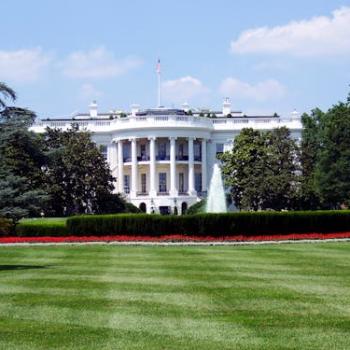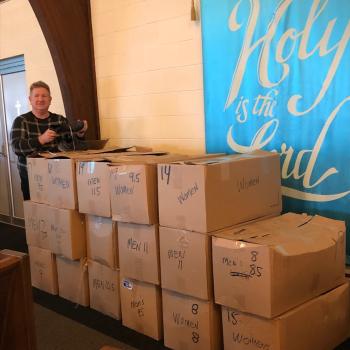As Muslims around the globe fast during the day for Ramadan, I can't help but think about Eastern Orthodox fasting. Orthodox Christians fast meat and dairy on Wednesday and Friday of each week. Wednesday's fast is to remember Judas' betrayal of Christ, and Friday's is to remember Jesus' death on the cross. There are also extended fasting periods leading up to feasts. We fast (meat and dairy) for forty days before Pascha (Easter) and forty days before Christmas. We also fast for two weeks before the Feast of the Dormition of Mary in August, as well as for up to a month before the Feast of St. Peter and Paul in June. We're basically vegan for roughly half the year. In addition, we fast completely before a liturgy in order to prepare our bodies and souls for the Eucharist.
Many people don't understand religious fasting. I don't like the word religious there; I think spiritual might be more appropriate. The state of one's spirit can affect the body, and the state of one's body can affect the spirit. Fasting is a way to attune the spirit to God and His will. I suffer because He suffered for me. I deny myself particular foods to remind myself that Christ taught me to deny myself, take up my cross, and follow him. Fasting is also a time to refocus my heart. Extended fasting periods such as the Lenten and Advent fasts are a time to spiritually reflect and retune, to ask for forgiveness, to help the needy, and to pray with more intensity. I suppose fasting is a physical means to a spiritual cleanse.
This is very similar to what Muslims are doing during Ramadan. They pray more, make peace with those they have wronged, do good works, and refrain not only from food, but from evil thoughts and words. It is a time to purify both body and soul. I think Muslims and Orthodox Christians have found a key element to a rich spiritual life in fasting.
When I was a senior in high school at an international school in Bangkok, Thailand, I took a school trip to Kuala Lumpur, Malaysia. The trip was during Ramadan, so the Muslim host family I stayed with was fasting during the day. Every morning and every evening, they would set out a plate of food for me on the vast dining room table, but they didn't join me. It was later, after dark, as I was getting ready for bed, that I'd hear the clacking of plates and their quiet talking. They had a daughter who was around my age and who attended the international school we were visiting. She had kind eyes that peeked out from under her headscarf; she spoke English well and was friendly to me. I slept in her room and was captivated by the Quran lying there on a pedestal between the two beds. It was open, with a silk bookmark resting on the pages. If I remember correctly, the text was in English, or perhaps in two languages. I couldn't help but turn the pages, look for something I recognized. Was I breaking a rule by touching the Quran? I didn't know. As a Christian missionary's kid, the entire experience was unfamiliar, but a bit exhilarating.
I felt that same out-of-my-comfort-zone excitement when I first started attending the Orthodox Church. During liturgy I didn't know the songs or when to cross myself or when to sit or what everything meant. But it was something new and beautiful and it drew my spirit in. Though fasting made me uncomfortable at first, I have come to appreciate it as a spiritual discipline that, in a mystery, draws me out of my selfishness and pushes me closer to God.
8/7/2012 4:00:00 AM




